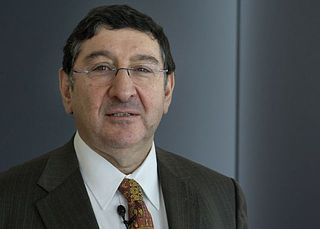A Quote by Laozi
Those who are quiet value the words. When their task is completed, people will say: We did it ourselves.
Related Quotes
The best leaders are those their people hardly know exist.
The next best is a leader who is loved and praised.
Next comes the one who is feared.
The worst one is the leader that is despised ...
The best leaders value their words, and use them sparingly.
When they have accomplished their task,
the people say, "Amazing!
We did it, all by ourselves!
Your mind is an instrument, a tool. It is there to be used for a specific task, and when the task is completed, you lay it down. As it is, I would say about 80 to 90 percent of most people's thinking is not only repetitive and useless, but because of its dysfunctional and often negative nature, much of it is also harmful. Observe your mind and you will find this to be true. It causes a serious leakage of vital energy.
Although many of us probably didn't get a thorough education in the value of a positive attitude, we can teach ourselves. Simply by making a decision to look for the good, happy, and beautiful in all things and all people, you will have completed the first and most important step in learning to accentuate the positive.
I don't know that I would say words are more political now, particularly after Donald Trump has come into office. I will say that what I notice is that people pay more attention to the words that politicians use. They really want to understand the full nuance, the connotative meanings of those words.
We all have a world of things inside ourselves and each one of us has his own private world. How can we understand each other if the words I use have the sense and the value that I expect them to have, but whoever is listening to me inevitably thinks that those same words have a different sense and value, because of the private world he has inside himself, too.
The Yogic sages say that all the pain of a human life is caused by words, as is all the joy. We create words to define our experience and those words bring attendant emotions that jerk us around like dogs on a leash. We get seduced by our own mantras (I'm a failure I'm lonely I'm a failure I'm lonely) and we become monuments to them. To stop talking for a while, then, is to attempt to strip away the power of words, to stop choking ourselves with words, to liberate ourselves from our suffocating mantras.
Is there a wrong way to say "I don't know"? Yes. When we declare ignorance, it should be a) honest and b) in the spirit of opening ourselves up to hearing, to learning, to receiving. When we say "I don't know" under these conditions, the words can forge connection, healing, growth. But when we resist or disavow knowledge, when we profess ignorance as a way of donning armor and evading accountability, then we make a mockery of those words, and we rupture connections not only with others but within ourselves, within our souls.
Those with engineering skills will build tomorrow's genius computers. But those with the ability to create knowledge of any kind will be the ones who are best able to extract great value from them. The way to create value in the age of genius machines will be to compile and disseminate knowledge that other people will find useful.
We're resolved tonight that young Americans will always see those Potomac lights, that they will always find here a city of hope in a country that's free so that when other generations look back at this conservative era in American politics and our time in power, they'll say of us that we did hold true to that dream of Joseph Winthrop and Joseph Warren, that we did keep faith with our God, that we did act worthy of ourselves, that we did protect and pass on lovingly that shining city on a hill.
If we were left to ourselves with the task of taking the gospel to the world, we would immediately begin planning innovative strategies and plotting elaborate schemes. We would organize conventions, develop programs, and create foundations… But Jesus is so different from us. With the task of taking the gospel to the world, he wandered through the streets and byways…All He wanted was a few men who would think as He did, love as He did, see as He did, teach as He did and serve as He did. All He needed was to revolutionize the hearts of a few, and they would impact the world.








































